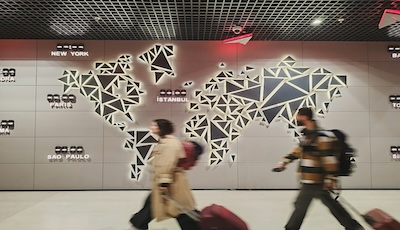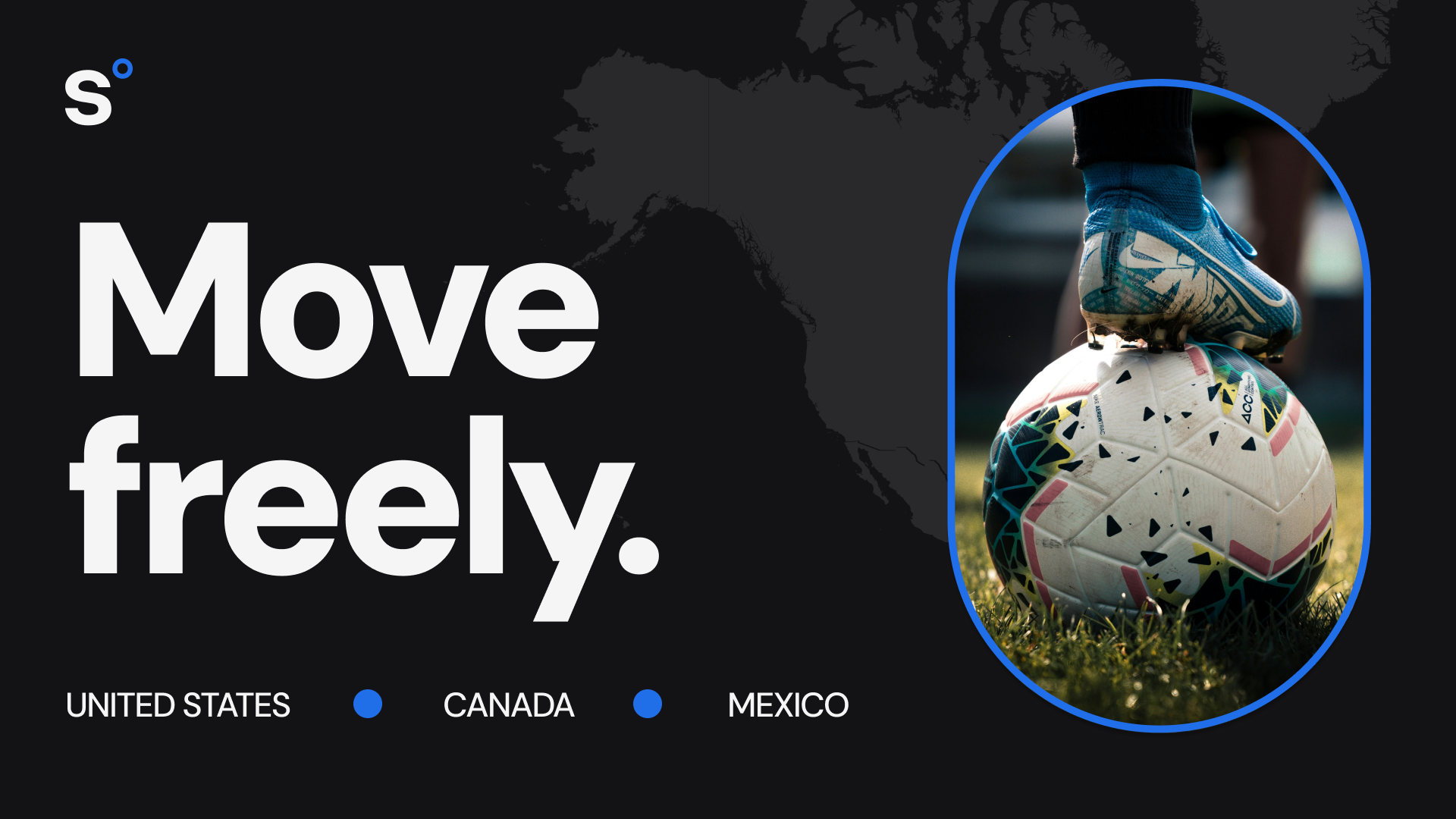Increasing sales of travel ancillaries—products or services added to the booking—can help travel brands recover from the effects of the global pandemic.
Airlines are already seeing a return on their ancillary strategies, despite a huge drop during the pandemic. In November 2021, ancillary sales increased by 13 percent compared to 2020, reaching $65.8 billion. That was well above levels of airline ancillary sales in 2012, 2013, and 2014. But airlines aren’t the only travel industry players who can benefit from refining their ancillary strategy to suit a post-lockdown marketplace.
“As the travel industry continues its recovery, ancillary services have become an increasingly important revenue stream,” said Aileen McCormack, Chief Commercial Officer at CarTrawler. “Consumers are seeking more flexible, personalized services and offerings…opening up huge opportunities for the market.”

Let’s take a closer look at how to maximize the potential of ancillaries.
To reap the best revenue opportunities from ancillaries, travel companies first have to offer a great product that draws customers in. Then they can suggest complementary products and services that enhance the travel experience. Some products and services, like our eVisa services, can be offered at the beginning of the booking flow or at any point along the way. This offering helps address any concerns over whether passengers can travel to the destination on offer.
Other ancillaries, like upgrades and experiences, can also be added to cart as travellers progress through the booking flow. That can include partner bookings, like hotels and car rentals, as well as peace of mind services like insurance and eVisa applications. Before checkout, travelers should see a simple reminder to add ancillary services they may like to buy—another good place to offer eVisas.
Ideally, none of these ancillaries should interrupt the booking flow. They should be a natural progression and—critically—they should keep the user advancing on your booking platform. That’s where partner integrations become a critical success factor. There are many fresh opportunities for the industry to refine online retail strategies to make add-to-cart options more attractive and seamless.
But there’s one key question: How do you ensure travellers don’t abandon the booking at check-out?
The answer may depend on payment flexibility.
The check-out freeze
The struggle to retain the online sale is not limited to travel brands. Research by the Baymard Institute found that 70 percent of consumers—across all industries—abandon their online shopping cart.
The top reasons for cart abandonment are related to payments, either because the total was higher than expected, or the consumer was unable to complete the purchase due to lack of varied payment methods.
- 48 percent found the extra costs too high
- 18 percent didn't trust the site with their credit card information
- 17 percent found the checkout process too long or too complicated
- 16 percent said they couldn't calculate total order cost up-front
- 9 percent found there weren't enough payment methods
- 4 percent had their credit card declined
Even when price isn’t an issue, the payment method can be.
But what if payments were made more accessible and affordable, or broken into smaller amounts paid over time?
Fintech has stepped up to fix the lump payment conundrum by facilitating a variety of payment options, including ‘buy now, pay later’ (BNPL), which opens up more opportunities to travel for a key demographic.
Affirm and Priceline appeal to younger consumers’ wallets
Much of the travel industry directly targets millennials and increasingly Gen Z. But many still treat these consumers like boomers when it comes to check-out, limiting their payment options to traditional credit cards, branded credit cards, or direct payment of a large lump sum. Payment services provider Affirm shared how one of their travel partners—Priceline—has benefited from a re-think on payments, tailor-made to retain younger consumers.
“Part of that stems from providing the ability to book a trip without having to pay immediately. That can be a big hurdle for customers. But Affirm makes it much easier for them to decide to take a trip with a smaller impact on immediate cash flow,” said Priceline’s Product Director Jacobus Kok. “Partnering with Affirm can also unlock business value by opening up or expanding market segments. It’s been interesting to see our demographic performance with Affirm, especially their strength in the millennial and Gen Z markets.”
CheapAir encourages customers to buy sooner with Affirm monthly payments
Flights have to be paid up-front, and fares rise as travel days near, which can make them an intimidating spend for some consumers. As CheapAir’s VP, Marketing and Business Development, Gregory Samson, explained, the company looked for solutions in alternative payments and fintech. With support from Affirm, they introduced simple monthly payments as an alternative to traditional credit.
“We try to give people a different way to pay,” he said. “We were the first in our industry to transact with cryptocurrency. Affirm is another unique way we help people to pay for their travel.”
- 48 percent of loan volume for CheapAir comes from millennials.
- 65 percent comes from those still building their credit profiles.
“If we can make it easier for people to buy the trip earlier and pay over time, a customer may ultimately save money, because as you approach the departure date the price of the trip tends to go up,” Samson said. “If they purchase in advance, the monthly payment option can be a money-saving strategy, and for last-minute travel, it can help travelers in a pinch.”
Flexible payments can resolve check-out freeze and can make ancillaries more attractive. Selling ancillary products, large or small, can benefit travel companies. Alternative payment options can make the larger ancillaries as easy for consumers to add to cart as smaller ones. Breaking up the payments over time with BNPL could ensure conversion.
Get a better return on ad budget
The travel industry cut back dramatically on advertising spend during the Covid-19 lockdown, but that investment is returning in the US with good reason.
As Zenith explains:
- Travel advertisers spend 63 percent of their ad budgets on digital advertising
- Travel brands earned 32 percent of their sales through e-commerce in 2021
Ensuring consumers don’t abandon the booking secures ROI on that generous digital ad spending.
“Post-COVID, the best-performing brands will complete this transformation by making the total experience digital, from reducing form-filling to contactless entry, removing nearly all possible friction from the experience,” said Ben Lukawski, Global Chief Strategy Officer, Zenith.
Taking the friction out of the travel experience is exactly what we had in mind when we decided to simplify eVisa applications. Using the information the traveler has already provided in the booking, we make the eVisa application process faster, with less likelihood of error. Our partners can offer their customers an affordable, value-added service while boosting their revenue. And travelers can progress smoothly on your booking flow, thanks to our customizable integrations.
Helping travelers see more of the world
At sherpaº we help travelers move freely around the world. Our ancillary products touch thousands of travelers each day, positively contributing to revenue for our partners across the travel ecosystem.
Simplifying payments is another way to address travelers’ concerns, while boosting revenue from ancillaries. While Fintech leaders such as Affirm do not necessarily consider themselves an 'ancillary,' the benefits for travel e-commerce sites are all the same. By providing value-added products and services at the right time, travel suppliers have the ability to reduce friction and increase conversion rates.
Designing a seamless booking flow that offers customers the options they need and makes costs transparent can ensure that they complete the booking and come back again.
At sherpa° we’re passionate about freedom of movement. Our mission is to help travellers move freely around the world and to shift the way the world's leading travel providers approach border crossings. Through unmatched industry knowledge and expertise, we help our partners—from airlines to cruise lines to online travel agencies—open new ancillary revenue streams to help them reduce costs and operational risk while enhancing the customer journey and growing consumer confidence in travel.
More than simply providing a product or service, we're moving travel forward. Away from stress and confusion, and towards ease and connection. So travellers can move freely wherever life takes them. This is the future of international travel. Contact us today to find out how our suite of solutions can help grow your business.




.png)


